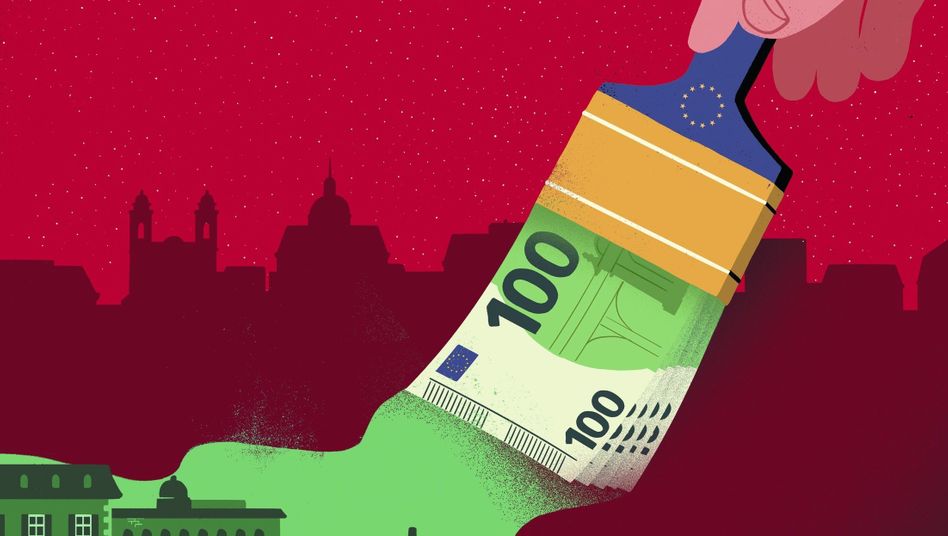
Introduction
Until recently, none of us knew about the novel coronavirus (SARS-CoV-2) except scientists. In about two-three months, this virus has spread all over the world and has turned our lives upside down. It has significantly weakened the economies of even the most powerful countries. It has filled hospitals with patients suffering from the illness it causes (COVID-19) and has taken the lives of thousands. It has showed how insufficient the health systems of even the most developed countries are. The countries considered most powerful have started to compete for procuring personal protective equipment (PPE) against the virus. Some of these countries have even been accused of resorting to “modern-day piracy” to procure PPE. The panic caused by the spread of the virus has produced new forms of discrimination and stereotyping. People of East Asian descent in the United States have faced verbal harassment due to the virus first appearing in China. Workers and businesspeople from Africa who had previously traveled to and from China and lived there without problems are now faced with rampant social ostracization there. Tourists from Western European countries that once colonized Africa have been begun to be treated in some Africa countries as “plague” spreaders. We can extend the list of the novel coronavirus’ economic, political, and social effects with many more examples.
The European Union, the sue generis supranational organization, has had its share of problems due to the virus. The biggest economies and leading countries of the EU, namely Germany, France, Italy and Spain have been heavily affected by the virus and have lost thousands of people. Italy, which is known as a country with an exemplary healthcare system in Western Europe, unfortunately, has been the worst affected EU member. A similar situation has occurred in Spain. The EU as an organization, and the EU countries individually, would have been expected to be the first to run to the assistance of Italy in such a disaster situation. This, unfortunately, has not happened.
The EU And EU Countries Have Failed To Respond To Italy's Call For Help
In the earlier days of the global spread of novel coronavirus after the outbreak in China, Italy was among the countries that the first cases in Europe were detected. The region of Lombardy in the north of the country reported the first local transmission of the virus and the first Italian died after being infected with the virus on 21 February 2020 in the northern city of Padua[1]. As the epidemic continued to grow, Italy introduced unprecedented measures, extending the lockdown to all of Lombardy and then to the rest of the country. In line with these measures, Italian residents have been requested to curtail their movements. Public activities, including school attendance, sports gatherings, weddings, and funerals have been suspended. However, Italy, just before the declaration by the World Health Organization (WHO) of the coronavirus outbreak as pandemic on 11 March 2020, was forced to ask the assistance of EU in the first ten days of March[2].
The best explanation of this process is included in the article by the Italian Ambassador and Permanent Representative to the EU, Maurizio Massari, published on 10 March 2020 in the Politico newspaper as follows:
“… But Rome should not be left to handle this crisis alone. In addition to national measures, this is a crisis that requires a global and — first and foremost — a European response. We are thankful to the European Commission for its positive engagement and to the president of the European Council for promoting a consultation among European Union leaders in order to discuss further coordination and possible common action. But it’s time now for the EU to go beyond engagement and consultations, with emergency actions that are quick, concrete and effective. To begin with, we must ensure, under EU coordination, the supply of the necessary medical equipment and its redistribution among those countries and regions most in need. Today, this means Italy; tomorrow, the need could be elsewhere. Italy has already asked to activate the European Union Mechanism of Civil Protection for the supply of medical equipment for individual protection. But, unfortunately, not a single EU country responded to the Commission’s call. Only China responded bilaterally. Certainly, this is not a good sign of European solidarity. Next, to ensure equity and transparency, it is crucial that the EU adopts a common approach to detecting and reporting coronavirus cases, with common guidelines for the entire bloc. Finally, we must acknowledge that the impact of the epidemic on the economy will be heavy, particularly so for Italy (Lombardy and Veneto account for almost a third of the country’s economic activity), but also for the whole of Europe and the global economy … This is a battle in which we are facing two terrible enemies: panic and selfishness. We are facing exactly the type of emergency in which a ‘Europe that protects’ must show it can deliver. Unless we wake up immediately, we run the risk of going down in history like the leaders in 1914 who sleepwalked into World War I. The virus will pass, but any rotten seeds of complacency or selfishness will stay. The coronavirus crisis is a test of the EU’s cohesiveness and credibility — one that can only be passed through genuine, concrete solidarity. Europe must act according to the principle of mutual defense and help those members whose security is under threat. If we are courageous and united, we will win. If we are selfish and divided, we will lose”[3]
It is not possible to interpret this article of the Italian Ambassador only as a “cry for help”. The Italian Ambassador emphasizes that the EU is going through a cohesiveness and credibility test. He underlines that the only way to pass the test is through true solidarity.
If this process is considered as a test, the EU has failed with an extremely low grade. Some EU countries have imposed limits on the sale of protective masks and other items[4]. The Guardian has reported in that “Germany and France are among the EU countries to have imposed limits on the export of protective medical equipment, while China has offered to sell Italy 1,000 lung ventilators, 2m masks, 20,000 protective suits and 50,000 swabs for coronavirus tests” [5]. In fact, China has sent to Italy an airplane full of masks and ventilators bearing “Forza Italia” stickers with small Chinese and Italian flags.
Russia has also sent Italy equipment and personnel including 600 ventilators, 100 military virologists and epidemiologists, and eight medical teams, disinfection equipment, a field laboratory for sterilization and chemical prevention, and other similar tools to fight the coronavirus pandemic[6].
It should be underlined that following Italy’s activation of NATO’s Euro-Atlantic Disaster Response Coordination Center, Turkey has also sent health supplies consisting of masks, overalls and anti-bacterial fluids, produced domestically in the Turkish Defense Ministry’s factories and sewing facilities to Italy and Spain by military planes[7].
As a result of these developments, France and Germany have both come under fierce fire for initially declining to provide Italy with face masks and other equipment to help it handle the outbreak. The French President Emmanuel Macron, most probably for damage control, has given interview to Italian newspapers La Repubblica, Corriere della Sera, and La Stampa, a day after Italy logged its worst one-day death toll yet – recording 969 new deaths, said that “France is alongside Italy.” He also said that “There is a lot of talk about Chinese or Russian aid, but why don’t we say that France and Germany have delivered 2 million masks and tens of thousands of gowns to Italy?”[8].
Corona Bonds Dispute Have Further Deepened The Divide In The EU
As has been widely covered in the international press, the novel coronavirus outbreak has not only caused fatalities, but has also had devastating effects on the economies of all countries. Health spending in all countries increased to unprecedented levels. Meanwhile, thousands of laborers have become unemployed due to layoffs. States had to pump money into the economy, as businesses had come to a point of closure. This situation, which is valid for all states, has caused a deep crisis also within the EU. A deep, Europe-wide recession in economies has become inevitable.
In order to provide financial headroom for the EU members, EU limits on budget deficits have been relaxed to allow EU members to borrow more money. According to a European online newspaper specially reporting on EU affairs;
“The European Central Bank has pumped hundreds of billions into markets to prevent the shock triggering a new financial crisis. EU leaders were forced to back efforts by the European Commission to redirect money from the EU budget to help purchase more medical equipment for the member countries. One issue is to what extent the EU's bailout fund, the European Stability Mechanism with a firepower of €410bn, should be used to help countries withstand the economic shock”[9].
In the meantime, “nine of the 19 countries in the eurozone, including Italy and France, wanted the bloc to go further. They called for the European Union to issue debt, dubbed corona bonds, to raise long-term finance for all member states to help pay for measures to counter the damage wrought by the pandemic”[10]. (italics added by author for emphasis) The above referred nine countries are Belgium, France, Greece, Italy, Ireland, Portugal, Luxembourg, Spain and Slovenia[11].
However, as per the news reports, Germany, the Netherlands, Austria, and Finland which are dubbed by some as fiscally conservative “Frugals” were opposed to “corona bonds” and this new obstruction has sparked harsh reaction in especially southern member countries of the EU[12]. One of the most striking examples of these reactions have come from the Portuguese Prime Minister António Costa. It is reported that Costa described the call made by Dutch Finance Minister Wopke Hoekstra to Brussels to investigate why some countries did not have enough financial means for maneuver to overcome the economic impact of the crisis as "repugnant". Costa has reportedly said that the “… statement is repugnant in the framework of the European Union. And that's exactly the right expression for it —repugnant … No one has any more time to hear Dutch finance ministers as we heard in 2008, 2009, 2010 and so forth… this recurrent pettiness completely undermines what the spirit of the European Union is.” Spanish Foreign Minister Arancha González joined the criticism, writing on Twitter: “Wopke Hoekstra, we are in this EU boat together. We hit an unexpected iceberg. We all share the same risk right now. No time for discussions about alleged 1st & 2nd class tickets”[13].
As pointedly described in one press report, “this dispute reflects broader resentment among both southern Europeans, who feel they are often unfairly lectured by German, Dutch and Nordic leaders on financial housekeeping, and their northern neighbors, who argue that they should not be required to bail out governments who pursue what they see as irresponsible fiscal policies”[14].
Conclusion
It is obvious that this pandemic has caused a humanitarian and economic crisis has not been seen in recent history. Perhaps the last time such a global upheaval took place was during the Second World War that ended 75 years ago. Therefore, the EU member states’ response to this extraordinary crisis by ordinary methods seem to have resulted in indignant reactions from southern European EU countries, almost all of which have predominantly Catholic populations in contrast to most of the northern European EU countries. It can be said that under normal circumstances delays in EU to agree on fiscal policies is part of the daily routine. However, the EU and some EU countries were too late and selfish to support countries like Italy and Spain in this humanitarian crisis.
In fact, these hard truths admitted by the President of EU Commission Ursula von der Leyen in her speech on the coordinated response to the COVID-19 outbreak at the European Parliament Plenary on 26 March 2020. Some excerpts from this speech are as follows:
“It is hard to believe how much and how dramatically the world has changed since we last met. In the blink of an eye, a virus that started on the other side of the world has become a deadly pandemic with tragic consequences also here in Europe. In a heartbeat, our lifestyles changed. Our streets emptied. Our doors closed. And we went from business as usual to the fight of our lives. In that time, we have seen the fragility of life laid bare in front of our eyes. And we have seen tragedy on a scale unimaginable even just a few short weeks ago in the heart of Europe… But while the virus has hit us hard, the people of Europe have hit back just as hard … But the story from the last few weeks is partly a painful one to tell. When Europe really needed to be there for each other, too many initially looked out for themselves. When Europe really needed an ‘all for one' spirit, too many initially gave an ‘only for me' response. And when Europe really needed to prove that this is not only a ‘fair weather Union', too many initially refused to share their umbrella…”[15].
As it was reported recently in the international press, von der Leyen admitted one more time EU’s failure in helping Italy and openly apologized. In this context, von der Leyen in her opening remarks to the European Parliament which met to discuss a joint response from member states to the novel coronavirus pandemic said that; “It is true that no one was really ready for this. It is also true that too many were not there on time when Italy needed a helping hand at the very beginning… And it is right, that Europe apologizes wholeheartedly for this”[16].
The EU may overcome these problems. However, it will not be easy for the peoples of the southern EU members, who feel betrayed, to forget the treatment they have recently faced. In fact, Turkey, albeit in another context, for long time has this feeling of betrayal. This is a feeling that Turkey is very familiar with. We hope that the confession by EU and von der Leyen regarding the discrimination against southern Europe during this pandemic will be kept in mind also for Turkey when we will back to normalcy.
An example of this sense of betrayal was recently expressed by the former Deputy Prime Minister of Italy and the leader of the Italian political party League, Matteo Salvini. According to an Italian online newspaper, Salvini said that “Crazy. Europe takes another fifteen days to decide what to do, if, who and how to help. In the midst of an emergency, with people dying, now with pneumonia, tomorrow perhaps with poverty." Answering to a question whether it still makes sense to stay in the EU and in the euro in the light of the tough confrontation in the EU and the refusals of Germany and the northern EU members to Italy's requests, he replied that “this is a den of snakes and jackals. First we defeat the Virus, then we think back to Europe. And, if needed, we say goodbye. Without even thanking”[17].
Another very recent example is Spanish Prime Minister Pedro Sánchez’s letter published on 5 April in titled “Europe's future is at stake in this war against coronavirus.” Spanish Prime Minister in his letter, in substance, conveys the following message:
“The European Union is facing a different war from those we have successfully averted over the past 70 years: a war against an invisible enemy that is putting the future of the European project to the test… The circumstances are exceptional and call for unwavering positions: either we rise to this challenge or we will fail as a union. We have reached a critical juncture at which even the most fervently pro-European countries and governments, as is Spain’s case, need real proof of commitment. We need unwavering solidarity… Europe must build a wartime economy and promote European resistance, reconstruction and recovery… we are calling the new Marshall plan and which will require the backing of all of the EU’s common institutions… This solidarity has to ensure that there are no gaps between north and south that we leave no one behind… These are very challenging times which require bold decisions. Millions of Europeans believe in the European Union. We must not abandon them. We must give them reasons to keep believing. And we must act now or never, because, right at this moment, Europe itself is at stake”[18].
As reported by the BBC News, Brexit advocates in the UK rejoice what is happening in the EU and say that "the EU is finished." It is too early to say that "EU is finished". Nevertheless, these developments show us how fragile and slippery the ground on which the EU is nowadays operating. In this context, if some of its members continue with lecturing everybody, including EU members, and continue to behave selfishly by ignoring solidarity, the possibility of EU disintegration cannot be ruled out.
*Photo: https://www.spiegel.de
[1] Elisa Anzolin and Angelo Amante, “First Italian Dies of Coronavirus as Outbreak Flares in North,” Reuters, February 21, 2020, sec. World News, https://www.reuters.com/article/us-china-health-italy/coronavirus-outbreak-grows-in-northern-italy-16-cases-reported-in-one-day-idUSKBN20F0UI.
[2] “Timeline: How the New Coronavirus Spread,” Al Jazeera, April 20, 2020, sec. News, https://www.aljazeera.com/news/2020/01/timeline-china-coronavirus-spread-200126061554884.html.
[3] Maurizio Massari, “Italian Ambassador to the EU: Italy Needs Europe’s Help,” Politico, March 10, 2020, https://www.politico.eu/article/coronavirus-italy-needs-europe-help/.
[4] Amie Tsang, “E.U. Seeks Solidarity as Nations Restrict Medical Exports,” The New York Times, March 7, 2020, sec. Business, https://www.nytimes.com/2020/03/07/business/eu-exports-medical-equipment.html.
[5] Daniel Boffey, “Italy Criticises EU for Being Slow to Help over Coronavirus Epidemic,” The Guardian, March 11, 2020, sec. Europe, https://www.theguardian.com/world/2020/mar/11/italy-criticises-eu-being-slow-help-coronavirus-epidemic.
[6] “Russia Sent Italy a Military Convoy of Medical Supplies to Help with the Coronavirus Outbreak. Italy Said It Was Useless and Accused Them of a PR Stunt,” Business Insider, March 26, 2020, https://www.businessinsider.com/coronavirus-italy-russia-military-convoy-supplies-useless-pr-stunt-2020-3.
[7] Busra Nur Bilgic Cakmak, “NATO Chief Hails Turkey for Medical Aid to Italy, Spain,” Anadolu News Agency, April 1, 2020, sec. Europe, https://www.aa.com.tr/en/europe/nato-chief-hails-turkey-for-medical-aid-to-italy-spain/1787617.
[8] “Macron Vows Support for Italy as Country Logs Its Highest One-Day Death Toll,” France 24, March 28, 2020, sec. Europe, https://www.france24.com/en/20200328-french-president-macron-expresses-solidarity-with-italy-says-europe-must-not-be-selfish.
[9] Eszter Zalan, “EU Leaders at Odds on Virus-Hit Economy,” EU Observer, March 26, 2020, https://euobserver.com/coronavirus/147892.
[10] Mark Thompson, “The EU Can’t Agree on How to Help Italy and Spain Pay for Coronavirus Relief,” CNN, March 27, 2020, sec. CNN Business, https://edition.cnn.com/2020/03/27/economy/corona-bonds-eu/index.html.
[11] Zalan, “EU Leaders at Odds on Virus-Hit Economy.”
[12] “Germans and Dutch Set to Block EU ‘Corona Bonds’ at Video Summit,” Euractiv, March 26, 2020, sec. EMU, https://www.euractiv.com/section/economy-jobs/news/germans-and-dutch-set-to-block-eu-corona-bonds-at-video-summit/.
[13] “Dutch Try to Calm North-South Economic Storm over Coronavirus,” Politico, Europe edition, accessed April 18, 2020, https://www.politico.eu/article/netherlands-try-to-calm-storm-over-repugnant-finance-ministers-comments/.
[14] “Dutch Try to Calm North-South Economic Storm over Coronavirus.”
[15] “Speech by President von Der Leyen at the European Parliament Plenary on the European Coordinated Response to the COVID-19 Outbreak” (European Commission, March 26, 2020), SPpeech/20/532, https://ec.europa.eu/commission/presscorner/detail/en/speech_20_532.
[16] “Coronavirus: EU Apologizes to Italy for Initial Response,” Deutsche Welle, April 16, 2020, sec. News, https://www.dw.com/en/coronavirus-eu-apologizes-to-italy-for-initial-response/a-53142603.
[17] Alberto Maggi, “Salvini: ‘L’Ue? Covo di serpi e sciacalli. Dopo il virus, se serve salutiamo,’” Affar Italiani, March 27, 2020, sec. Politica, https://www.affaritaliani.it/politica/salvini-l-ue-covo-di-serpi-e-sciacalli-dopo-il-virus-se-serve-salutiamo-662172.html?refresh_ce.
[18] Pedro Sánchez, “Europe’s Future Is at Stake in This War against Coronavirus,” The Guardian, April 5, 2020, sec. Europe, https://www.theguardian.com/world/commentisfree/2020/apr/05/europes-future-is-at-stake-in-this-war-against-coronavirus.
© 2009-2025 Center for Eurasian Studies (AVİM) All Rights Reserved
No comments yet.
-
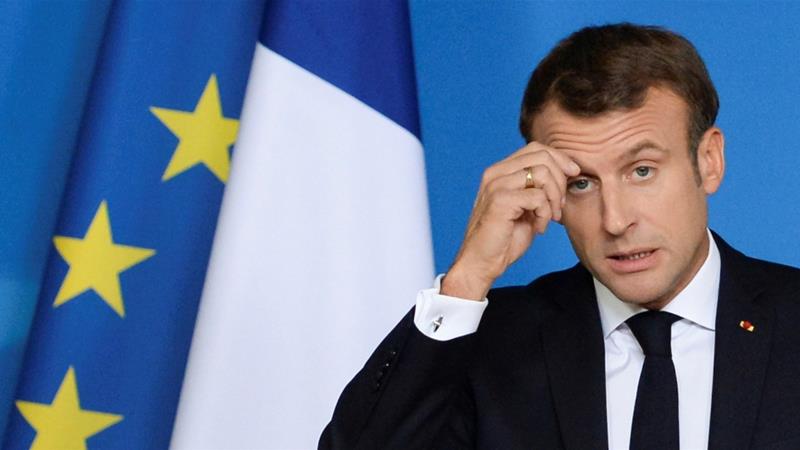 FRANCE WITH MACRON: THE DESTABILIZING FACTOR IN THE BALKANS
FRANCE WITH MACRON: THE DESTABILIZING FACTOR IN THE BALKANS
Teoman Ertuğrul TULUN 01.11.2019 -
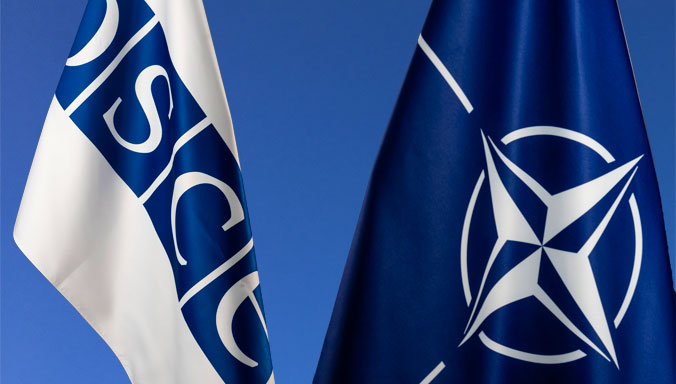 NATO IS NOT BRAIN-DEAD: HOW CAN OSCE AND NATO HELP STOP THE WAR IN UKRAINE?
NATO IS NOT BRAIN-DEAD: HOW CAN OSCE AND NATO HELP STOP THE WAR IN UKRAINE?
Teoman Ertuğrul TULUN 08.03.2022 -
 POSSIBLE EFFECTS OF A RUSSIAN-CHINESE JOINT SWIFT SYSTEM ON THE EURASIAN ECONOMY AND THE WORLD TRADE SYSTEM
POSSIBLE EFFECTS OF A RUSSIAN-CHINESE JOINT SWIFT SYSTEM ON THE EURASIAN ECONOMY AND THE WORLD TRADE SYSTEM
Teoman Ertuğrul TULUN 23.12.2021 -
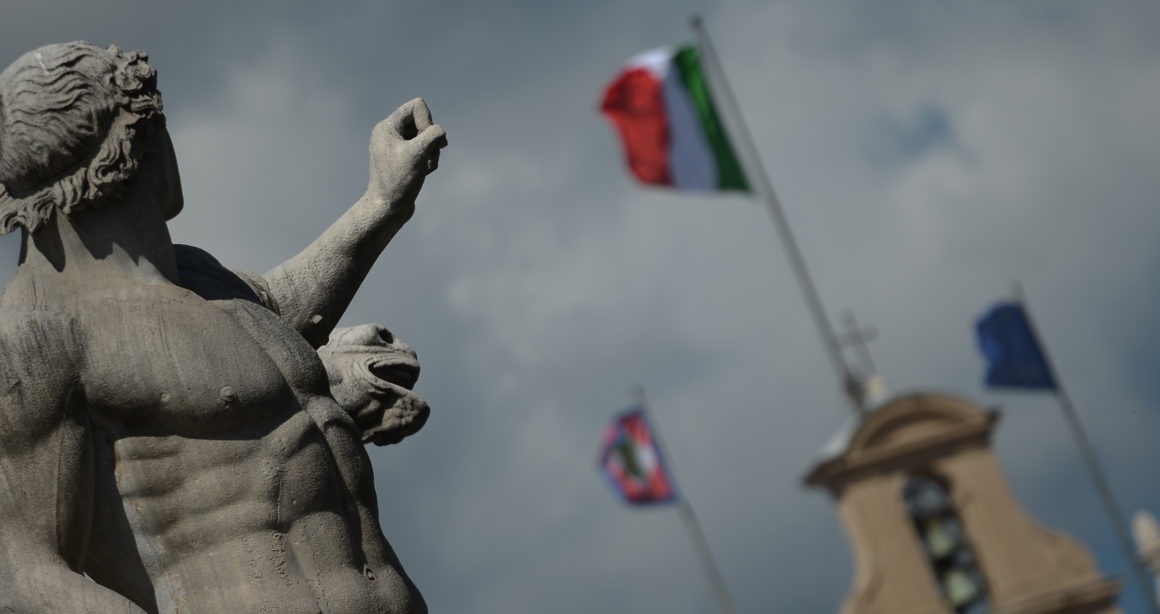 ITALIAN REACTION TO THE CAROLINGIAN EU PROJECT
ITALIAN REACTION TO THE CAROLINGIAN EU PROJECT
Teoman Ertuğrul TULUN 11.04.2019 -
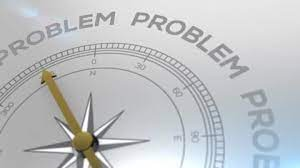 EU STRATEGIC COMPASS FOR SECURITY AND DEFENCE SHOWS THE WRONG COURSE AT THE WORST POSSIBLE TIME
EU STRATEGIC COMPASS FOR SECURITY AND DEFENCE SHOWS THE WRONG COURSE AT THE WORST POSSIBLE TIME
Teoman Ertuğrul TULUN 04.04.2022
-
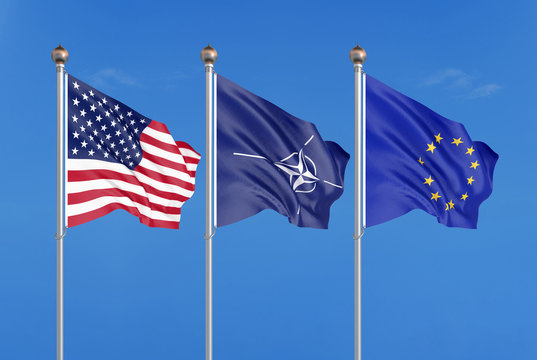 THE EU’S WORRIES ON THE US’ MILITARY EXISTENCE/ABSENCE
THE EU’S WORRIES ON THE US’ MILITARY EXISTENCE/ABSENCE
Hazel ÇAĞAN ELBİR 11.01.2021 -
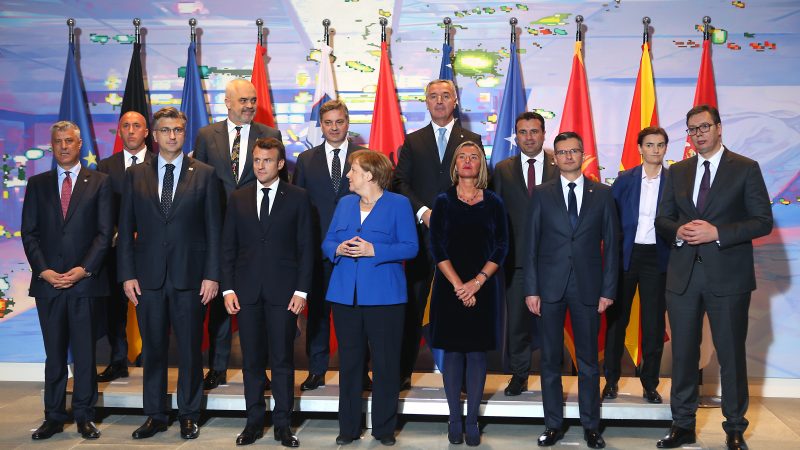 LEGACY OF "KRISENMANAGERIN": MERKEL AND THE BALKANS
LEGACY OF "KRISENMANAGERIN": MERKEL AND THE BALKANS
Teoman Ertuğrul TULUN 11.10.2021 -
 MORE THAN A LOCAL CONFLICT: THE KYRGYZSTAN-TAJIKISTAN BORDER DISPUTE
MORE THAN A LOCAL CONFLICT: THE KYRGYZSTAN-TAJIKISTAN BORDER DISPUTE
Gülperi GÜNGÖR 10.02.2023 -
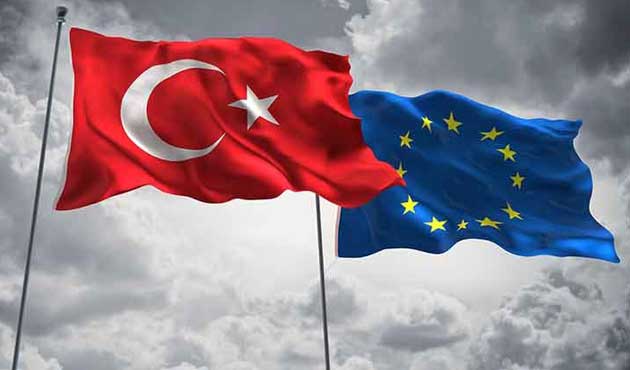 EU'S INCORRIGIBLE BIAS AND ANTAGONISM AGAINST TURKEY HAS BEEN REVEALED
EU'S INCORRIGIBLE BIAS AND ANTAGONISM AGAINST TURKEY HAS BEEN REVEALED
AVİM 21.09.2020 -
 CYCLE OF DESTABILIZATION AND RESTABILIZATION: IMPACTS ON BALKAN DEMOCRACIES
CYCLE OF DESTABILIZATION AND RESTABILIZATION: IMPACTS ON BALKAN DEMOCRACIES
Teoman Ertuğrul TULUN 20.12.2024
-
25.01.2016
THE ARMENIAN QUESTION - BASIC KNOWLEDGE AND DOCUMENTATION -
12.06.2024
THE TRUTH WILL OUT -
27.03.2023
RADİKAL ERMENİ UNSURLARCA GERÇEKLEŞTİRİLEN MEZALİMLER VE VANDALİZM -
17.03.2023
PATRIOTISM PERVERTED -
23.02.2023
MEN ARE LIKE THAT -
03.02.2023
BAKÜ-TİFLİS-CEYHAN BORU HATTININ YAŞANAN TARİHİ -
16.12.2022
INTERNATIONAL SCHOLARS ON THE EVENTS OF 1915 -
07.12.2022
FAKE PHOTOS AND THE ARMENIAN PROPAGANDA -
07.12.2022
ERMENİ PROPAGANDASI VE SAHTE RESİMLER -
01.01.2022
A Letter From Japan - Strategically Mum: The Silence of the Armenians -
01.01.2022
Japonya'dan Bir Mektup - Stratejik Suskunluk: Ermenilerin Sessizliği -
03.06.2020
Anastas Mikoyan: Confessions of an Armenian Bolshevik -
08.04.2020
Sovyet Sonrası Ukrayna’da Devlet, Toplum ve Siyaset - Değişen Dinamikler, Dönüşen Kimlikler -
12.06.2018
Ermeni Sorunuyla İlgili İngiliz Belgeleri (1912-1923) - British Documents on Armenian Question (1912-1923) -
02.12.2016
Turkish-Russian Academics: A Historical Study on the Caucasus -
01.07.2016
Gürcistan'daki Müslüman Topluluklar: Azınlık Hakları, Kimlik, Siyaset -
10.03.2016
Armenian Diaspora: Diaspora, State and the Imagination of the Republic of Armenia -
24.01.2016
ERMENİ SORUNU - TEMEL BİLGİ VE BELGELER (2. BASKI)
-
AVİM Conference Hall 24.01.2023
CONFERENCE TITLED “HUNGARY’S PERSPECTIVES ON THE TURKIC WORLD"









